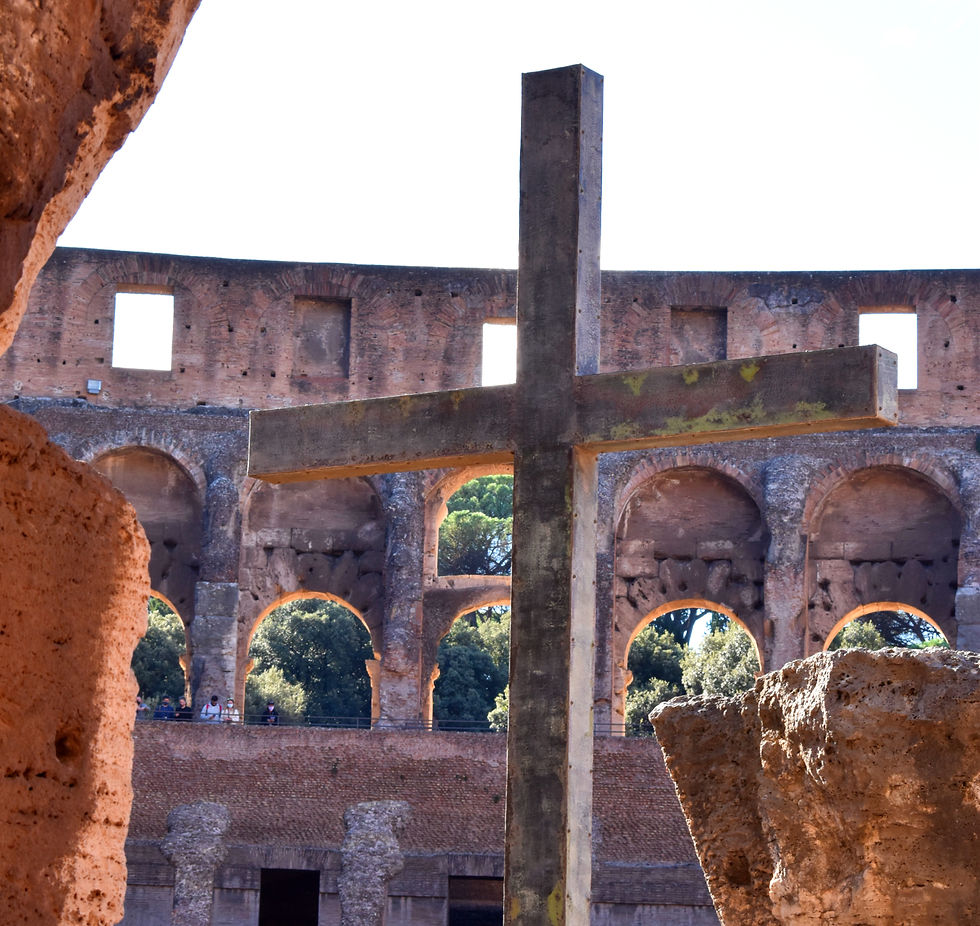Grief as a Theological Virtue
- timothyrgaines
- Jan 16, 2024
- 3 min read
Over my years in ministry, I’ve seen a lot of theology be done in and alongside grief. The pain of loss is evocative. It evokes questions. It calls for answers. It can enrage and soothe, hurt and heal. When we are hurting, we want answers for why we find ourselves in this pain and how we can get ourselves out of it. We Americans, especially, tend to want to microwave our grief, truncating it into a manageable package that somehow fits into our busy lives. Grief, as I’ve often seen it, is considered an intrusive presence, an unwelcome guest that must be dealt with as efficiently as possible. Have we, however, ever considered the possibility that grief may be a kind of theological virtue? Could the way we grieve help us to know God better?
These are the questions that motivated my turn to Martha and Mary in Walking the Theological Life. (If you’d like to help launch this book, along with a fuller exploration of this post, please let me know.) The longer I sat with them in their grief, the most astounded I became at what opened to them, and what they now open to us.

These women were sisters, if you’re having trouble recalling them, and they lived in a town called Bethany with their brother Lazarus (John 11). When Lazarus got sick, word got to Jesus, who makes some enigmatic comments about Lazarus sleeping and how a delay in going to Lazarus’s side was somehow going to help the disciples who followed Jesus with their belief. In short order Lazarus died, and it was only then that Jesus decides to make his way to Bethany.
On his way into town, Martha goes out to meet him. She leads with a question, familiar to those who have ever sat with grief: “If you had been here, my brother would not have died.” I don’t think we should read that softly. “Where were you?!” is probably just as likely a way to communicate her question. Grief often evokes questions of where God is when a loved one has died.
In the conversation that follows, Martha checks all the boxes for orthodox belief. She voices her ascent to some of the convictions that have become pillars in Christian faith: resurrection from the dead, Jesus as the Messiah, and so on. None of her answers were wrong. In fact, she’d probably ace my course in systematic theology. But there is virtue beyond affirming all the right answers, and in fact, there is more to be known of God beyond naming ‘correct’ answers to theological questions. By no means are Martha’s responses bad. Her affirmations don’t press Jesus further away from Bethany, but her belief in resurrection isn’t going to raise her brother back to life.
Mary is next. She finds Jesus at the outskirts of town and leads with the same opening line: “If you had been here, my brother would not have died.” Though the conversation opens with the same line as her sister, it takes a different kind of turn. Jesus, seeing her tears, asks where Lazarus has been laid to rest, and Mary’s response continues to astonish and shake me. “Come and see,” she said.
“Come and see” is a repeated phrase in John’s account, loaded with significance. It’s a repeated invitation that not only taps into John’s light/dark, sight/blind motif, but also has been reserved as an invitation for people to learn about Jesus – until now. This is the only time it’s directed at Jesus. He is being invited into the heart of Mary’s grief. It’s an invitation that opens the way for Jesus’s own tears. And, of course, I can’t resist the theological implications: what kind of a God weeps over the death of a beloved friend? If our concept of God doesn’t have room for the tears of Jesus, I fear something has gone wrong in our theological formation. If we don’t see the tears of Jesus, we’ve probably got God wrong.
What might have happened if Mary had not invited Jesus into the heart of her grief? Is it possible that grief, rather than an unpleasant and unwelcome houseguest, could be stewarded virtuously, in a way that helps us know God better and make startling discoveries, even if those discoveries shake our concepts of God? We can put it another way: the pain of loss can be stewarded toward theological virtue, or it can be aimed at vice. When it’s a vice, I think it looks like grieving in isolation, trying to ‘get over it,’ or even stuffing it down so we don’t have to acknowledge the loss we’re enduring. Grief as theological virtue, on the other hand, is probably something more like inviting God’s presence into the very heart of our grief, and when we do so, being astounded by what we see God do there. “Come and see,” Mary teaches us to say. “Come and see the heart of my grief.”



Comments